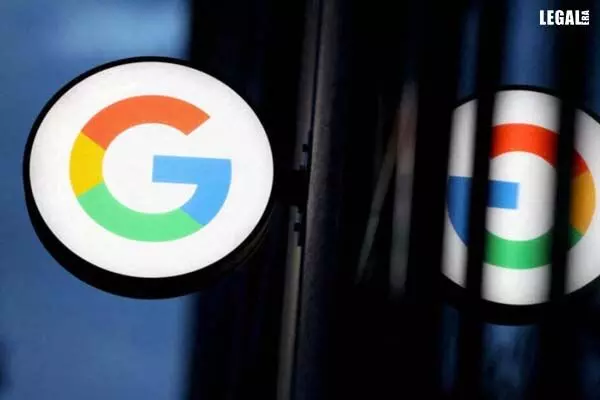- Home
- News
- Articles+
- Aerospace
- AI
- Agriculture
- Alternate Dispute Resolution
- Arbitration & Mediation
- Banking and Finance
- Bankruptcy
- Book Review
- Bribery & Corruption
- Commercial Litigation
- Competition Law
- Conference Reports
- Consumer Products
- Contract
- Corporate Governance
- Corporate Law
- Covid-19
- Cryptocurrency
- Cybersecurity
- Data Protection
- Defence
- Digital Economy
- E-commerce
- Employment Law
- Energy and Natural Resources
- Entertainment and Sports Law
- Environmental Law
- ESG
- FDI
- Food and Beverage
- Gaming
- Health Care
- IBC Diaries
- In Focus
- Inclusion & Diversity
- Insurance Law
- Intellectual Property
- International Law
- IP & Tech Era
- Know the Law
- Labour Laws
- Law & Policy and Regulation
- Litigation
- Litigation Funding
- Manufacturing
- Mergers & Acquisitions
- NFTs
- Privacy
- Private Equity
- Project Finance
- Real Estate
- Risk and Compliance
- Student Corner
- Take On Board
- Tax
- Technology Media and Telecom
- Tributes
- Viewpoint
- Zoom In
- Law Firms
- In-House
- Rankings
- E-Magazine
- Legal Era TV
- Events
- News
- Articles
- Aerospace
- AI
- Agriculture
- Alternate Dispute Resolution
- Arbitration & Mediation
- Banking and Finance
- Bankruptcy
- Book Review
- Bribery & Corruption
- Commercial Litigation
- Competition Law
- Conference Reports
- Consumer Products
- Contract
- Corporate Governance
- Corporate Law
- Covid-19
- Cryptocurrency
- Cybersecurity
- Data Protection
- Defence
- Digital Economy
- E-commerce
- Employment Law
- Energy and Natural Resources
- Entertainment and Sports Law
- Environmental Law
- ESG
- FDI
- Food and Beverage
- Gaming
- Health Care
- IBC Diaries
- In Focus
- Inclusion & Diversity
- Insurance Law
- Intellectual Property
- International Law
- IP & Tech Era
- Know the Law
- Labour Laws
- Law & Policy and Regulation
- Litigation
- Litigation Funding
- Manufacturing
- Mergers & Acquisitions
- NFTs
- Privacy
- Private Equity
- Project Finance
- Real Estate
- Risk and Compliance
- Student Corner
- Take On Board
- Tax
- Technology Media and Telecom
- Tributes
- Viewpoint
- Zoom In
- Law Firms
- In-House
- Rankings
- E-Magazine
- Legal Era TV
- Events
Google Faced With 1.5-Billion-Euro Penalty In US General Court

Google Faced With 1.5-Billion-Euro Penalty In US General Court
Worldwide, regulators are up against the tech giant over antitrust violations
The Luxembourg-based General Court will rule on Google's appeal of a 1.49-billion-euro ($1.65 billion) fine from the European Union.
The move came after the US tech giant suffered a stinging legal defeat over a bigger penalty. The case continues, as Google appealed the decision before the Court of Justice of the European Union (CJEU).
Recently, Brussels won when the CJEU upheld a 2017 fine worth 2.42 billion euros against Google for abusing its dominant position by favoring its comparison-shopping service.
The European Commission slapped Google with fines of 8.2 billion euros between 2017 and 2019 over antitrust violations, leading the way forward in targeting big tech abuses.
At stake now is the third of those fines of 1.49 billion euros, which the antitrust regulator imposed after finding that Google abused its dominance via its AdSense advertising service.
The General Court will publish its decision on Google's appeal against the fine.
Google had requested the court to annul (full or partial) the decision of the Commission and/or annul or curtail the penalty.
The tech giant is also challenging a 4.3-billion-euro penalty, which Brussels levied for putting restrictions on Android smartphones to boost its internet search business.
The 2018 fine remains the EU's largest-ever antitrust penalty.
In 2022, the General Court reduced the fine to 4.1 billion euros, but mainly supported the argument of the Commission that Google had imposed illegal restrictions.
The EU has since armed itself with a powerful Digital Markets Act (DMA), to rein in the world's biggest tech companies.
The DMA gives businesses a list of what they can and cannot do online, rather than regulators discovering egregious antitrust violations after probes last for years. The aim is to let the tech titans change their manner of operations instead of being penalized.
Along with Facebook owner Meta and Apple, Google is the subject of investigation under the DMA.
Recently, the tech titan faced its second major antitrust trial in less than a year with the US government accusing Google of a monopoly in ad technology, the complex system determining which online ads people see and their cost.
The judge noted Google's search business monopoly. It threatened a possible break-up for the tech behemoth. World over, ad tech is at the centre of multiple probes by regulators.
Early this month, British regulators stated that Google abused its dominance in the market. Similarly, the EU concluded last year that Google was distorting competition in the market and recommended that the company be forced to divest its ad-tech business.
Google has the right to respond to British and EU cases before the regulators make a decision.



